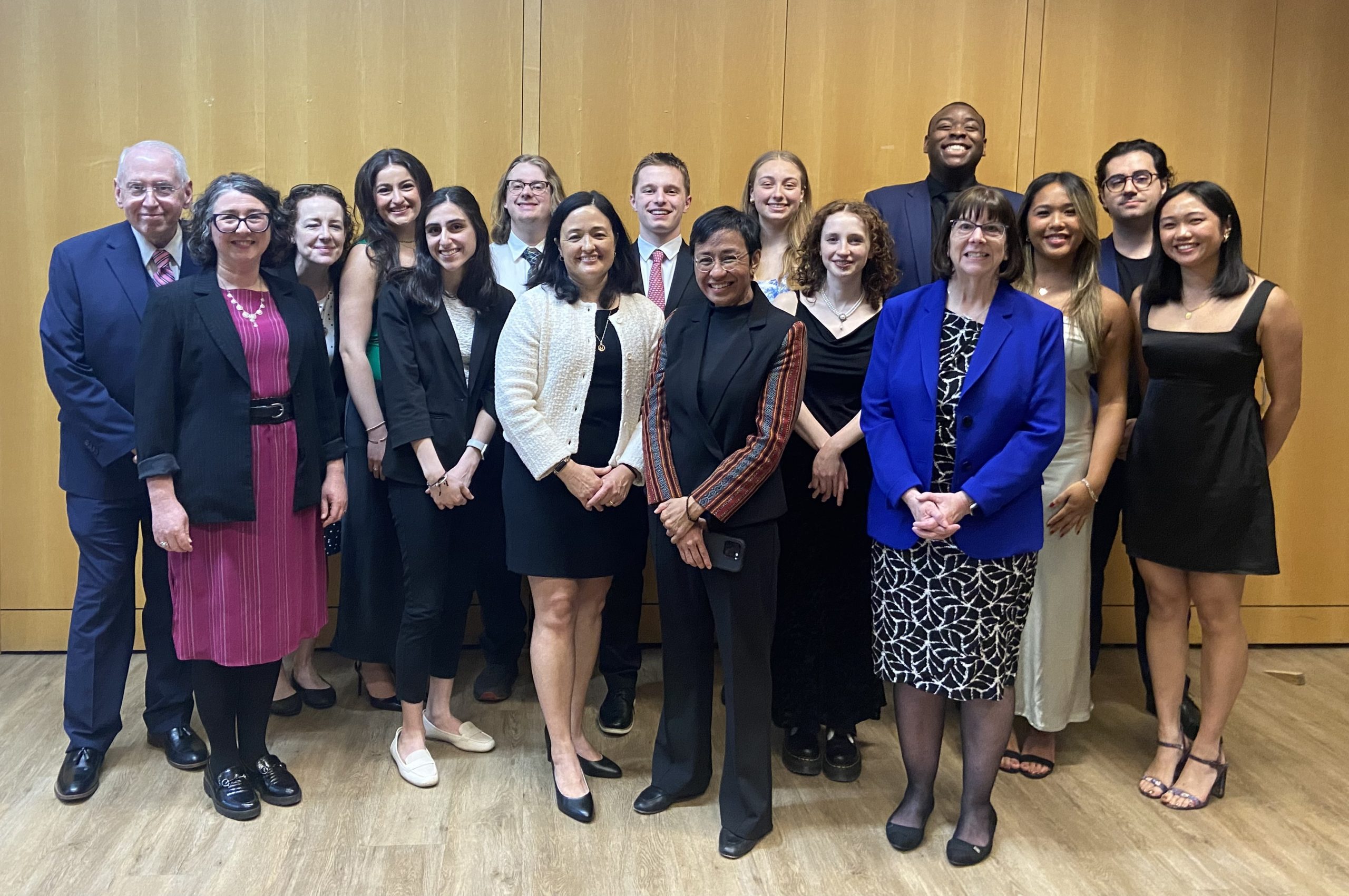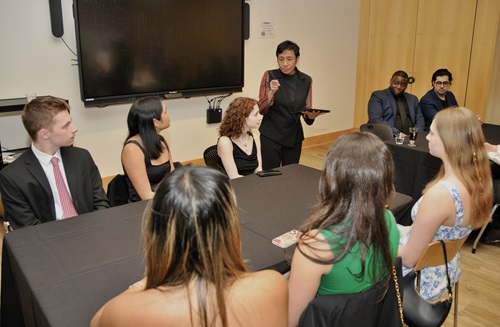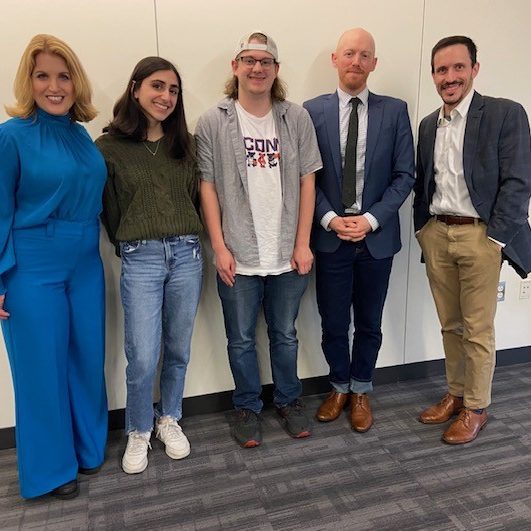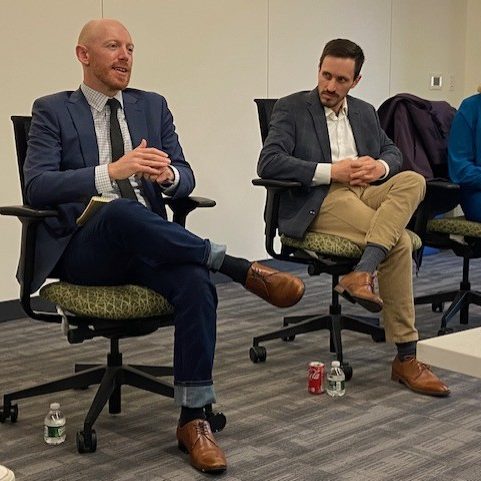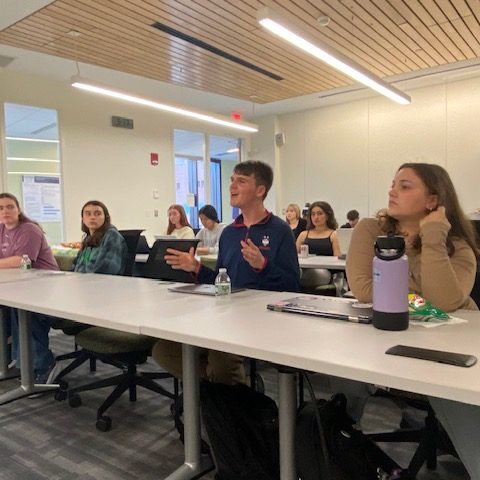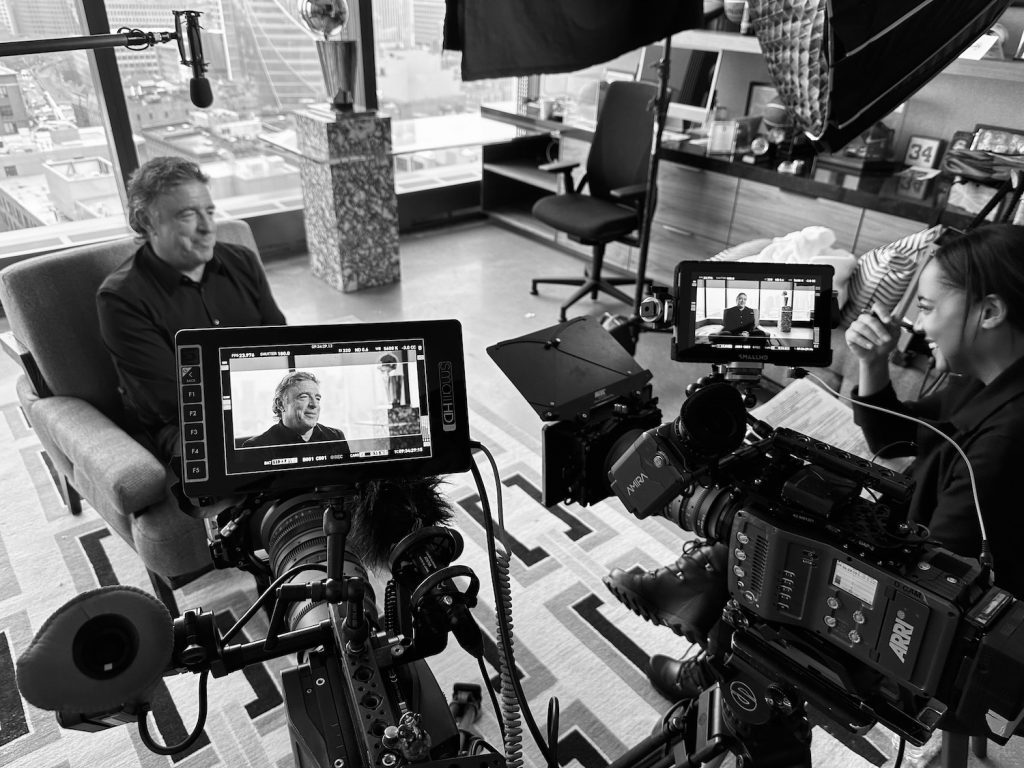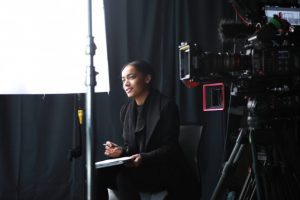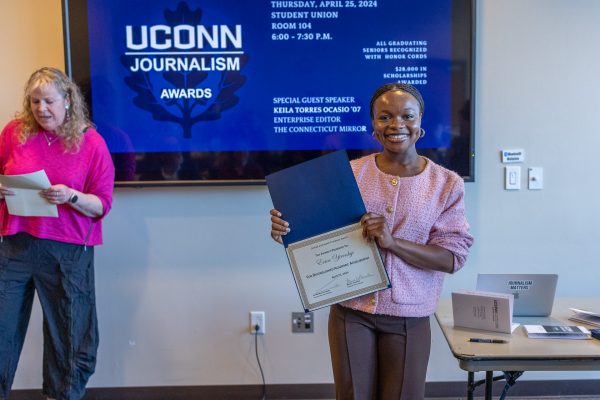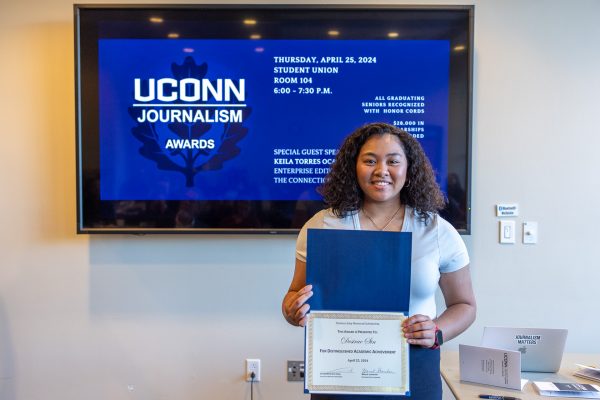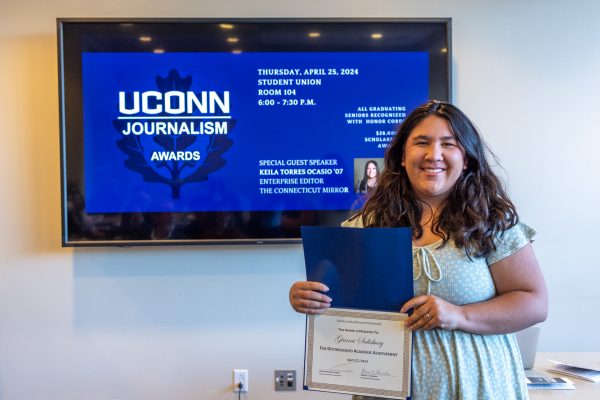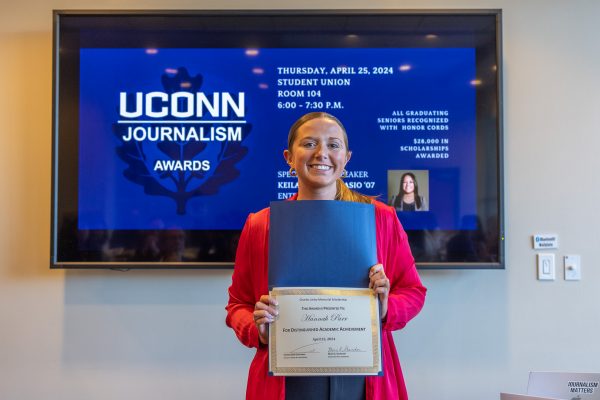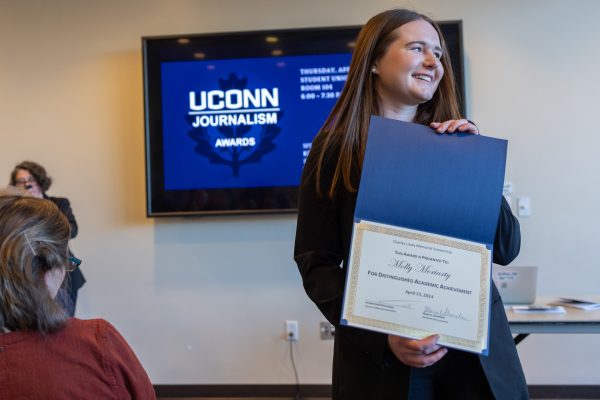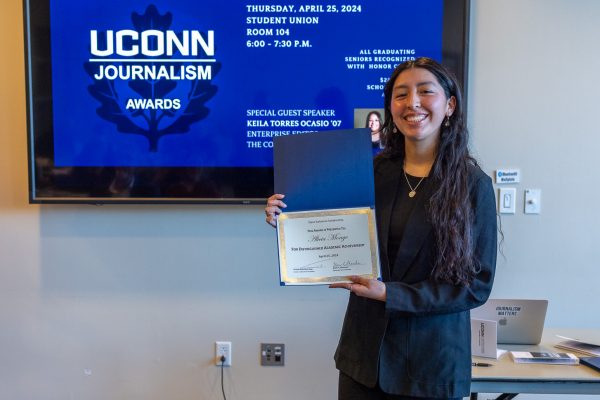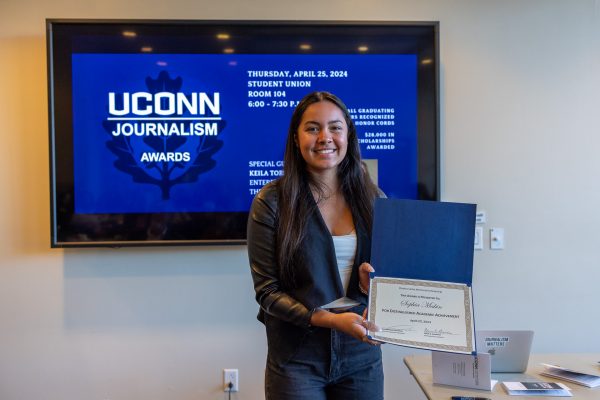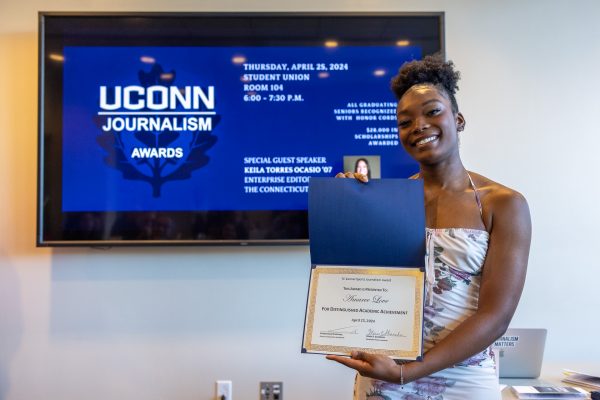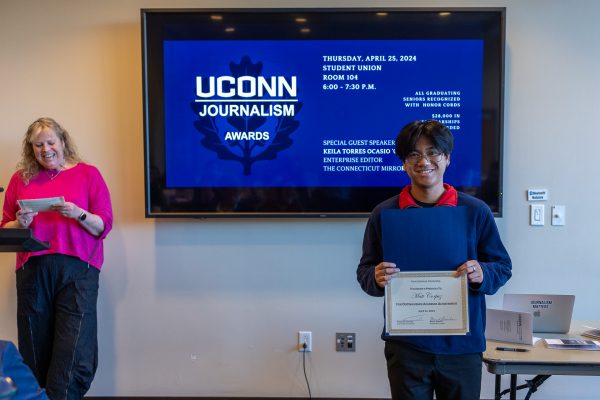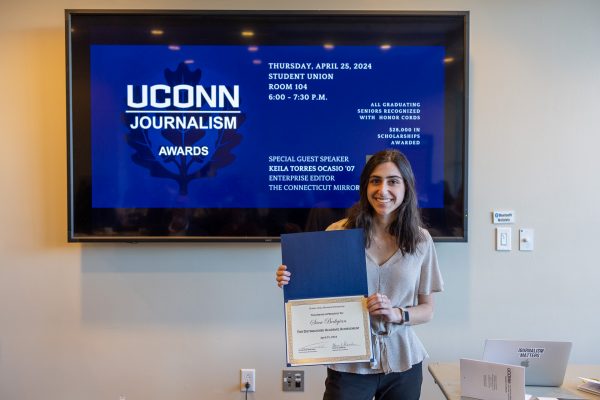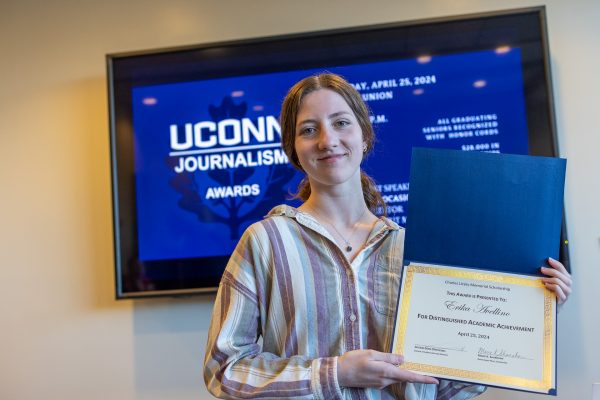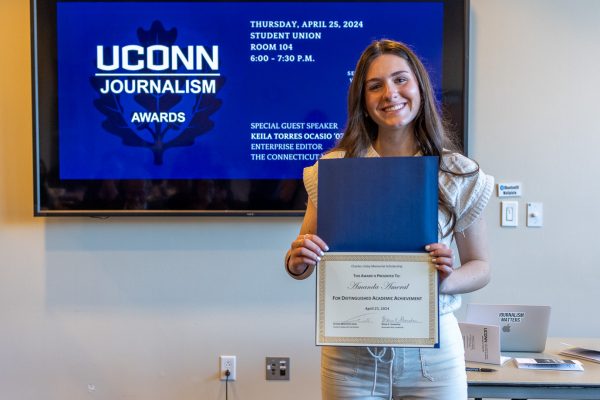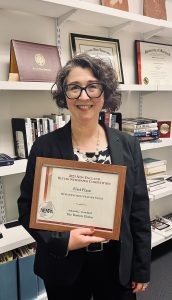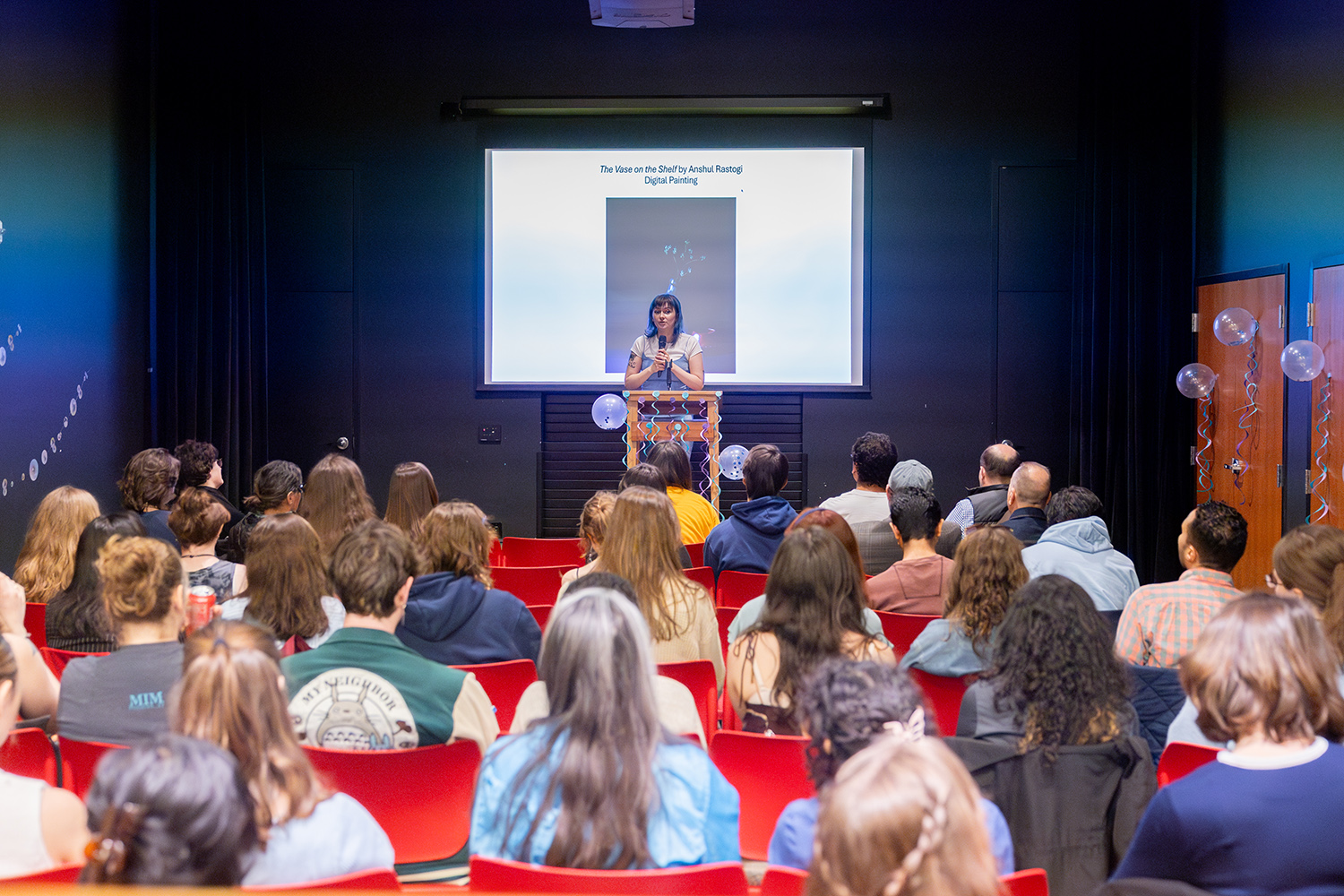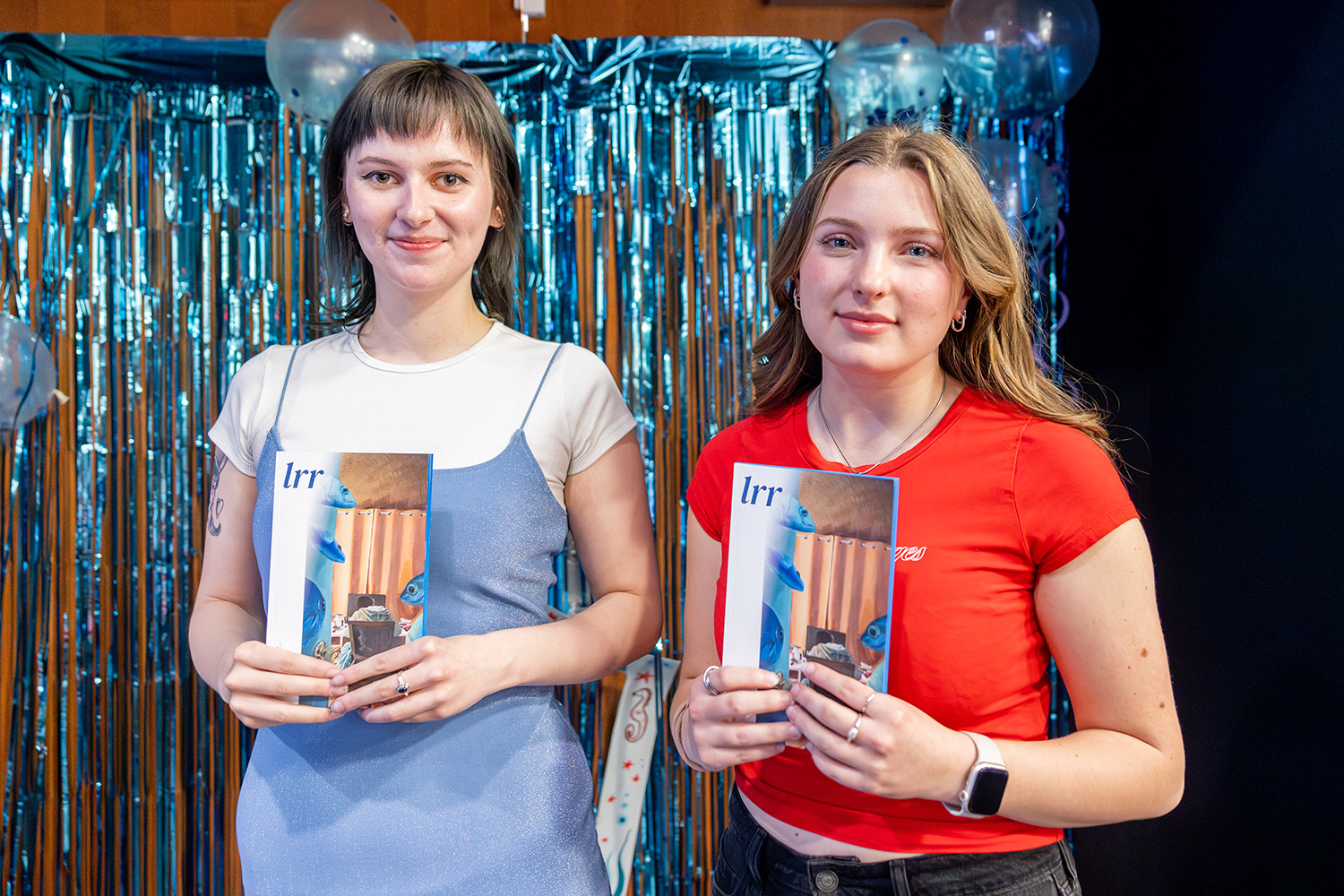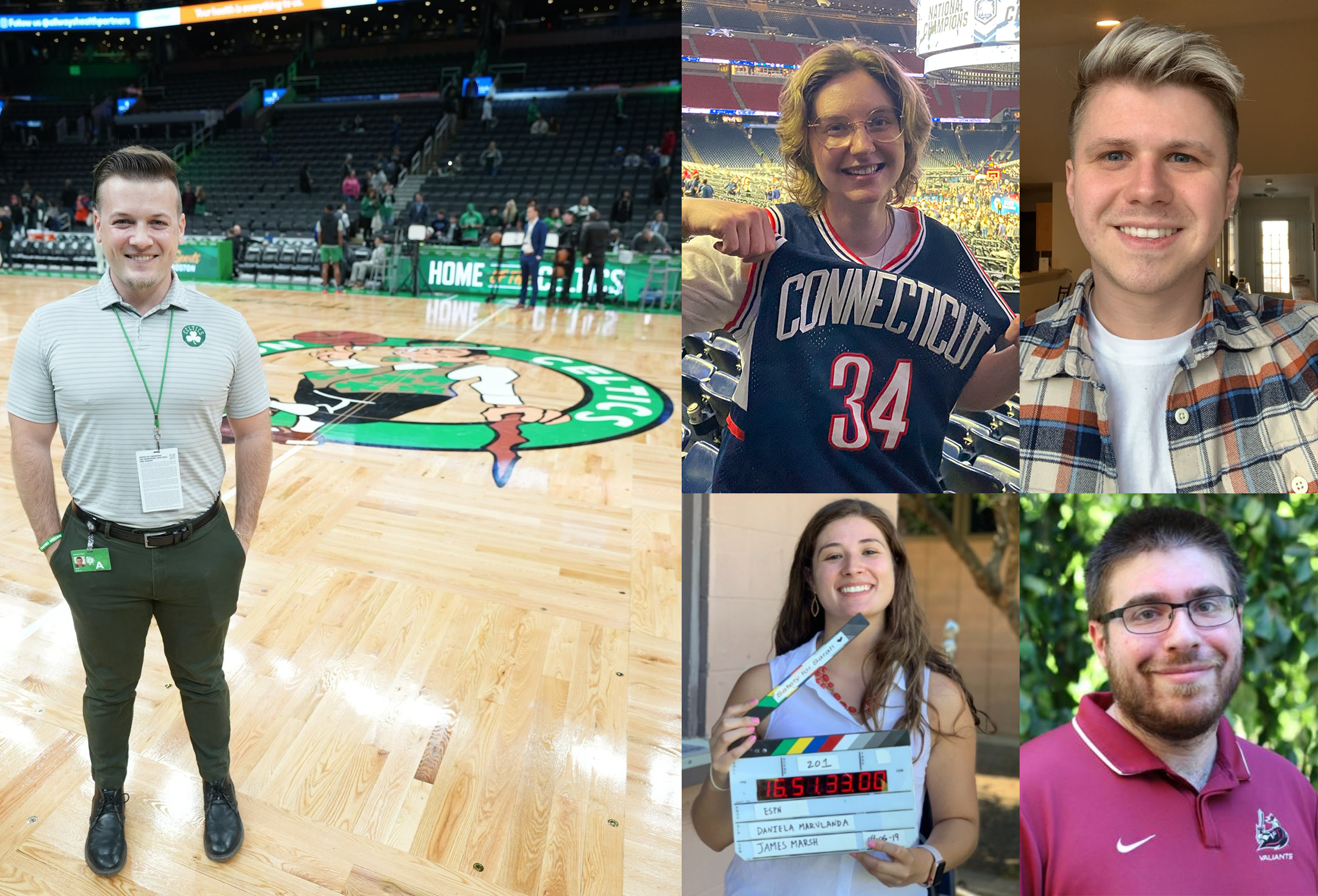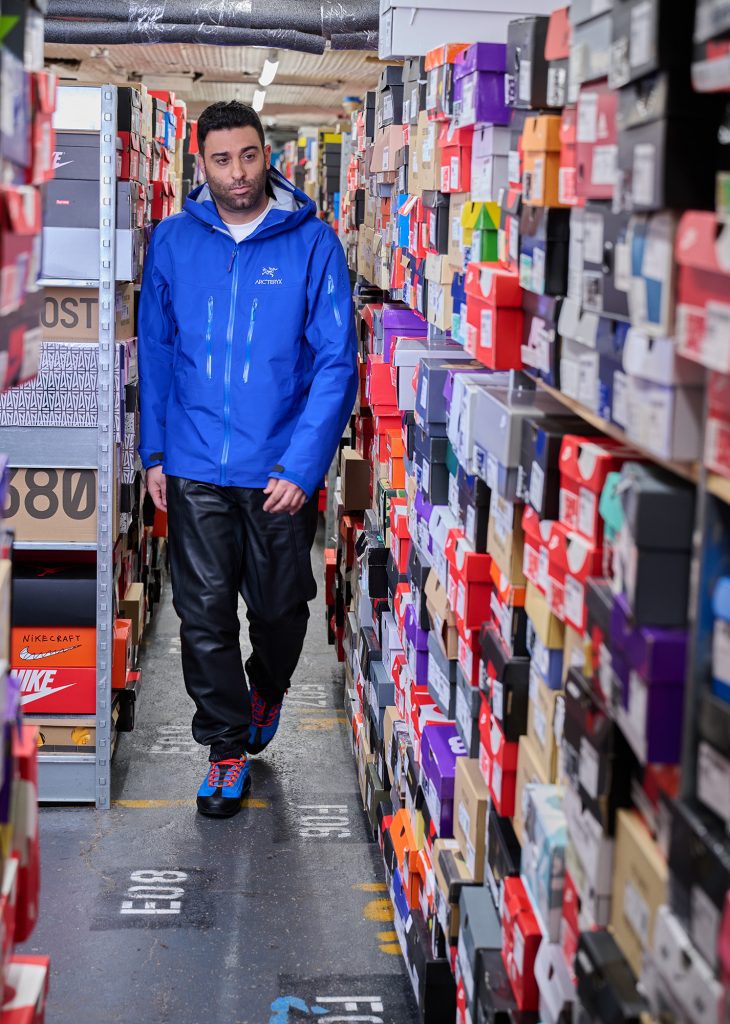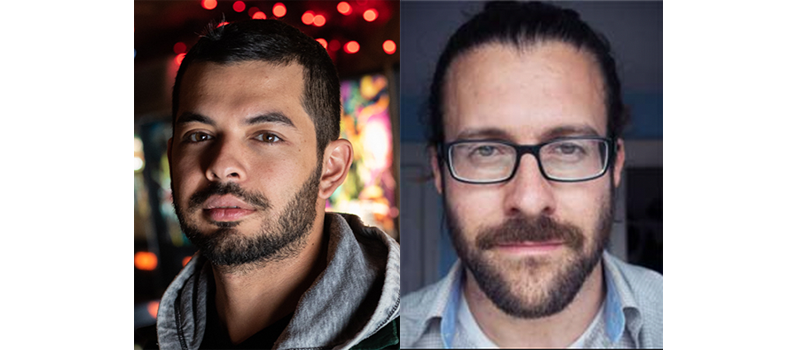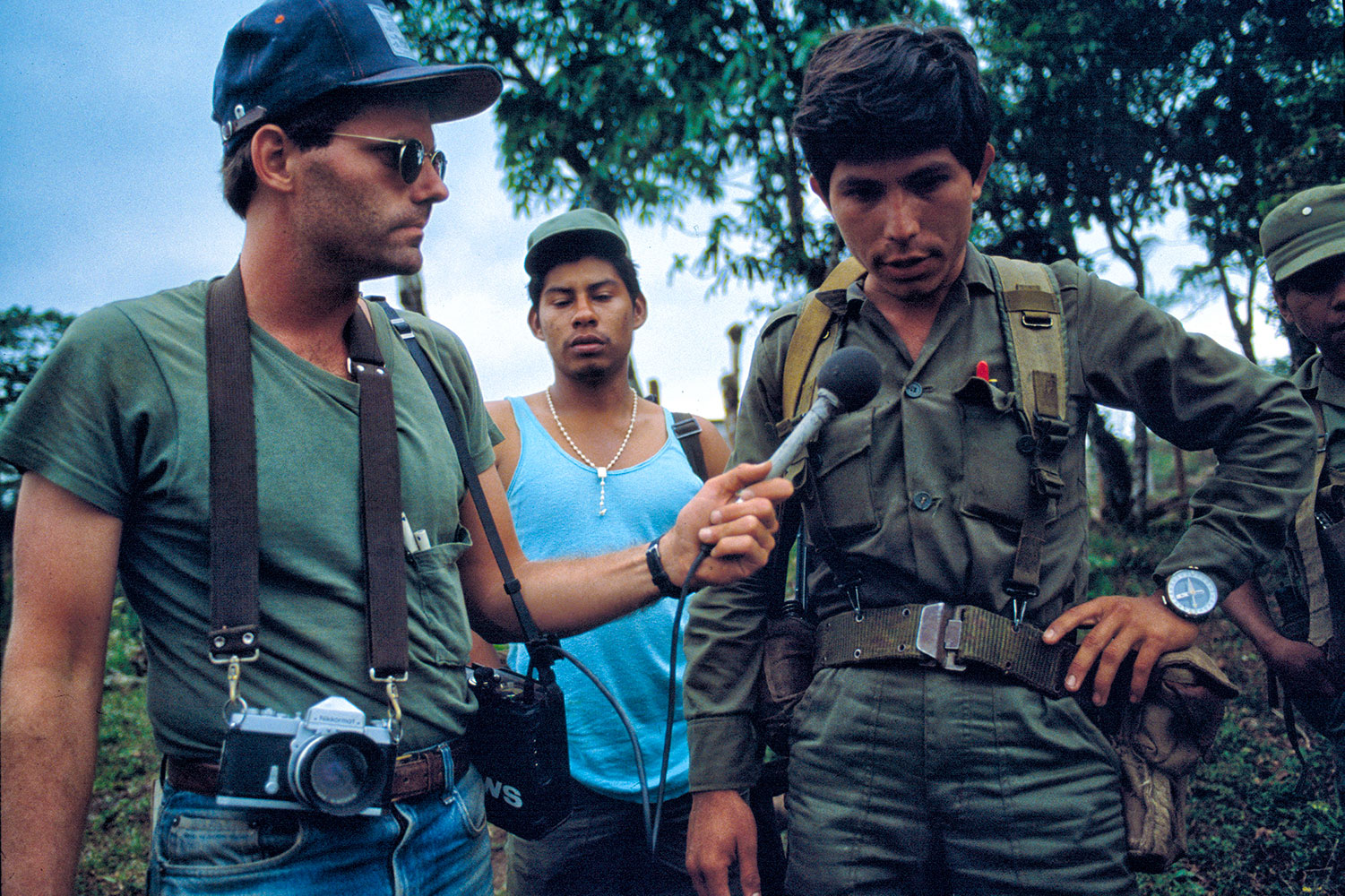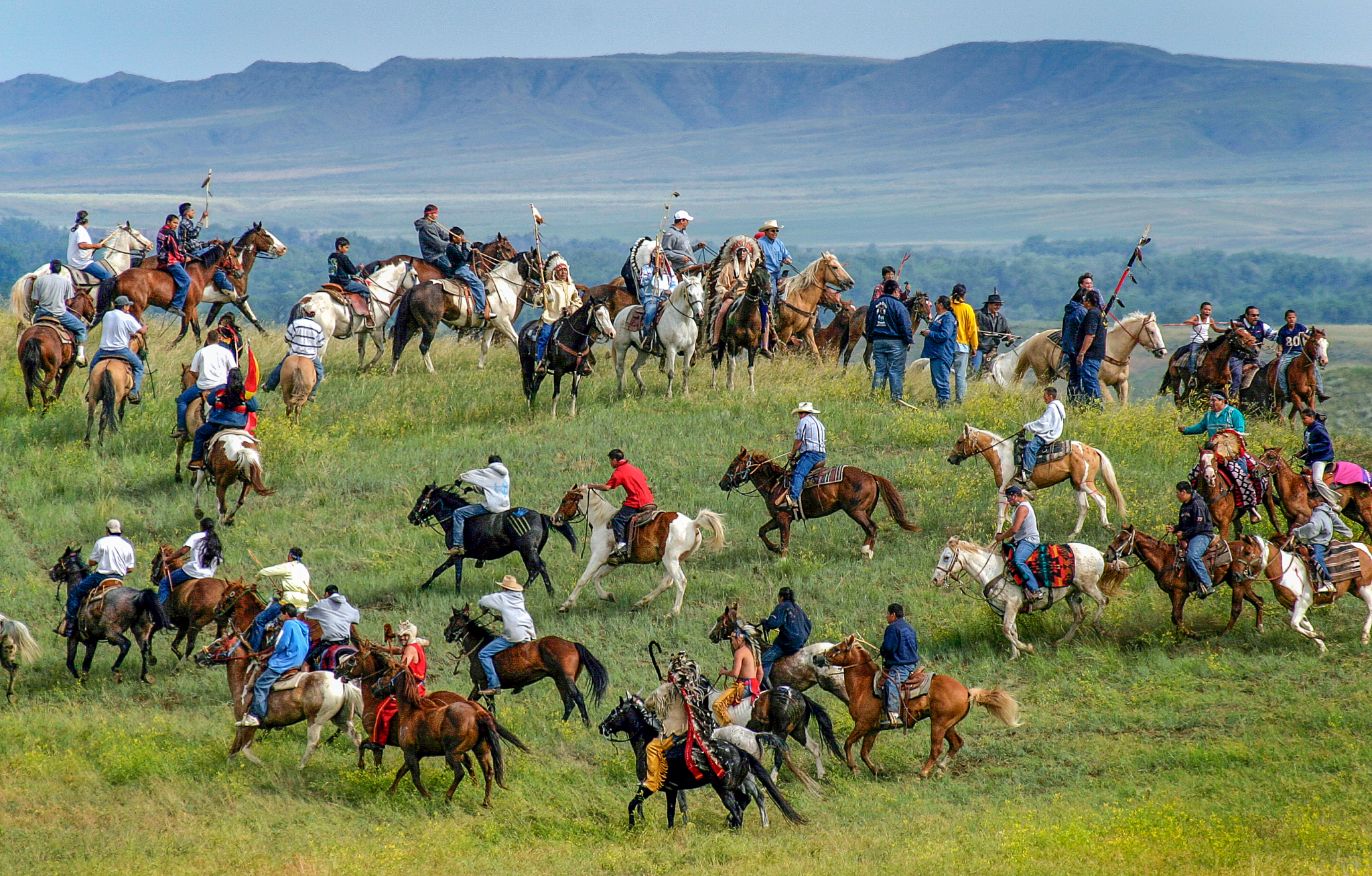
Steven G. Smith, an award-winning multimedia storyteller and professor in the Department of Journalism, has been named an Andrew Carnegie Fellow for 2025, joining just 25 other scholars nationally in receiving the prestigious honor for researchers in the humanities and social sciences.
Each fellow will receive $200,000 for research focusing on subjects related to political polarization, with the aim of eventually producing a book or other major study, the Carnegie Corporation of New York announced Wednesday.
“Receiving the Carnegie Fellowship is an honor, and I’m excited to continue working on ‘These United States,’ my long-term documentary photo essay exploring American identity in the 21st century,” says Smith, who won a Pulitzer Prize for photography as part of the Rocky Mountain News photo essay team that was honored in 2003. “The fellowship will provide invaluable time and resources to develop the project further and share stories from across the country. I’m incredibly grateful for this opportunity and for the support provided by the Carnegie Foundation and the University of Connecticut.”
Smith, whose previous work includes the award-winning documentary films “The Long Goodbye: A Caregiver’s Journey” and “One World, One People,” has already been working on his current project for a year and a half, traveling the U.S. and documenting its people in photography.
“My perspective as a visual journalist is to see what our country looks like right now,” Smith says. “It’s a portrait of America at the time of its 250th birthday.”
Visual media like photography and film offer a chance to examine complicated and emotionally charged subjects with unique nuance, Smith says, which is partly what drew him to the project.
“I’m a big believer in a wide variety of approaches,” he says. “Human beings are complex, and photography and visual communication can bring these subtleties and details to the surface that might otherwise be overlooked.”
Smith is just the second UConn faculty member to receive a Carnegie fellowship; Yonatan Morse, associate professor of political science, became the first in 2020.
Under the leadership of Carnegie president Dame Louise Richardson, the 2025 class marks the second year of the Andrew Carnegie Fellows Program’s focus on building a body of research focused on political polarization. Carnegie will commit up to $18 million to this effort over the three-year period.
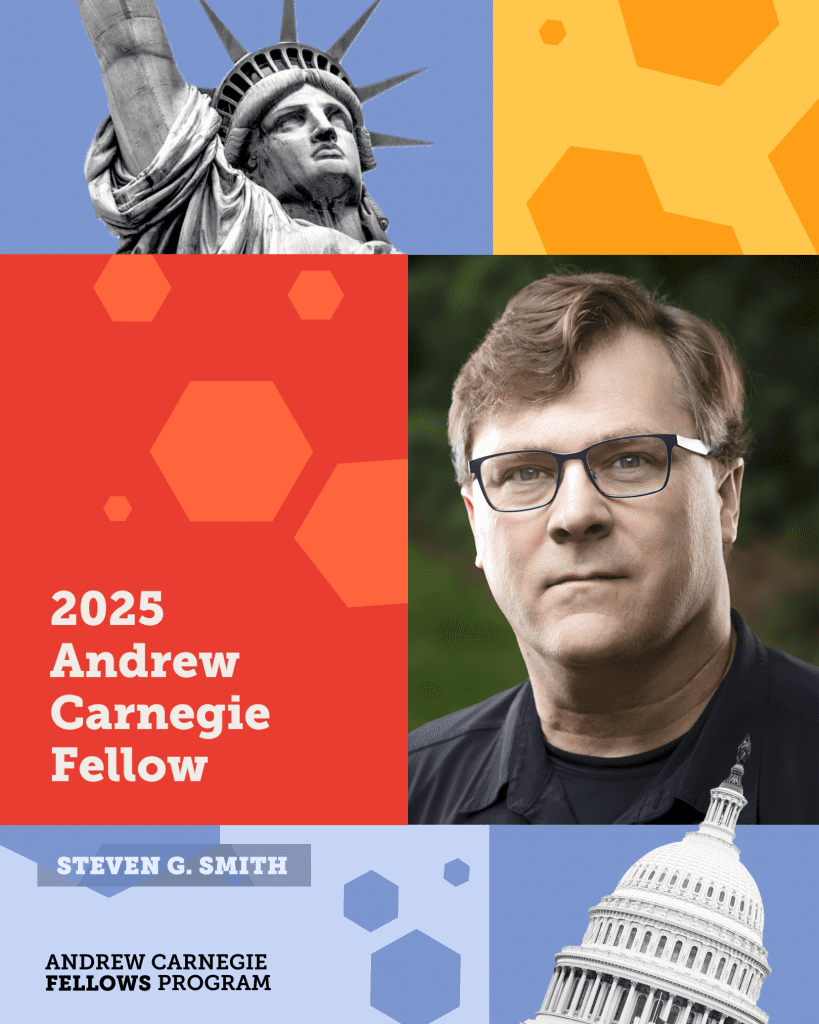 The winning proposals approach polarization through a wide array of disciplines and methods. Projects include analyzing the causes of the increasing political divides between men and women; assessing where Americans find common ground when it comes to their health; and understanding how partisan media, consultants, and entertainment industries are driving polarization for short-term profits, among other areas of research.
The winning proposals approach polarization through a wide array of disciplines and methods. Projects include analyzing the causes of the increasing political divides between men and women; assessing where Americans find common ground when it comes to their health; and understanding how partisan media, consultants, and entertainment industries are driving polarization for short-term profits, among other areas of research.
“Through these fellowships Carnegie is harnessing the unrivaled brainpower of our universities to help us to understand how our society has become so polarized,” says Richardson. “Our future grantmaking will be informed by what we learn from these scholars as we seek to mitigate the pernicious effects of political polarization.”
The focus on political polarization attracted more than 300 applications for the fellowship. A panel of jurors, chaired by Richardson and comprised of current and former leaders from some of the nation’s preeminent institutions, made the final selections. They prioritized proposals based on the originality and promise of the research, its potential impact on the field, and the applicants’ plans for communicating the findings to a broad audience.
Smith says the final shape of his project is still to be determined, but envisions possibilities like a book and exhibition of the work.
“I’d like to see this project be less overtly political and more a celebration of who we are,” Smith says. “Sometimes, when you’re out taking the pulse of the country, it can be a little frightening. But as I get out and shake hands and meet people and learn about their lives, I see a lot of kindness. That’s been very healing, to meet all these wonderful people and try to get just a little bit of their story.”
Founded in 2015, the Andrew Carnegie Fellows Program provides the most generous stipend of its kind for research in the humanities and social sciences. To date, Carnegie has named almost 300 fellows, representing a philanthropic investment of more than $59 million. Congressional testimony by past fellows has addressed topics such as social media and privacy protections, transnational crime, governmental responses to pandemics, and college affordability. Fellows have received honors including the Nobel Prize, Pulitzer Prize, and National Book Award.
